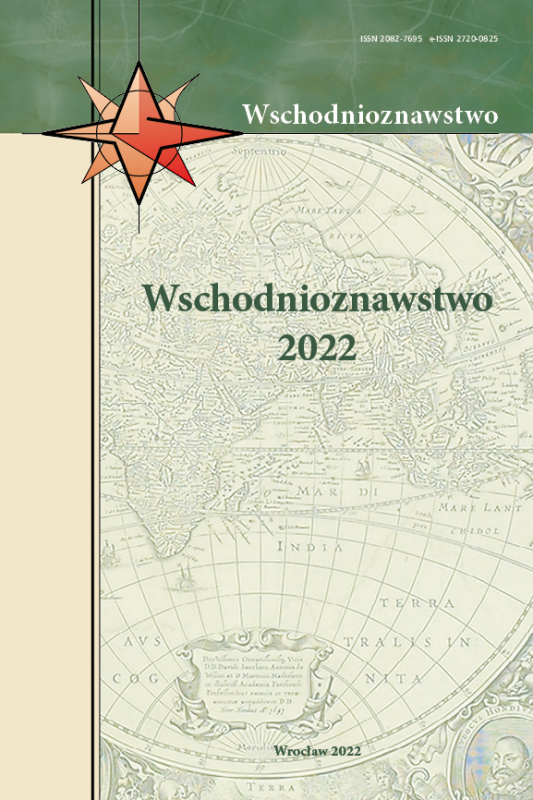Bezpieczeństwo kulturowe mniejszości tureckiej w Bułgarii na tle przemian społeczno-politycznych i gospodarczych w tym kraju
Cultural security of the Turkish minority in Bulgaria against the background of socio-political and economic changes in the country
Author(s): Elżbieta SzyszlakSubject(s): Social Sciences, Sociology, Social development, Sociology of Culture, Sociology of Politics
Published by: Wydawnictwo Uniwersytetu Jagiellońskiego
Keywords: Bulgaria; national and ethnic minorities; Turkish minority; cultural security; Turkish minority in the Balkans
Summary/Abstract: W artykule podjęto temat bezpieczeństwa kulturowego mniejszości etnicznych i narodowych analizując go na przykładzie mniejszości tureckiej w Bułgarii. Jest to najliczniejsza mniejszość w tym kraju, obecna w nim od kilku stuleci. Ponadto Turcy wraz z Pomakami i częścią Romów wchodzą w skład najliczniejszej mniejszości religijnej w Bułgarii – muzułmanów. Zachowanie przez nich tożsamości oraz ochrona i rozwój dziedzictwa kulturowego, czyli fundamentalnych elementów bezpieczeństwa kulturowego, uwarunkowane jest szeregiem determinantów o charakterze egzogennym i endogennym. Do jednych z najważniejszych należy m.in. polityka państwa zamieszkania i państwa macierzystego, czynniki demograficzne, charakter osiedlenia, czynniki ekonomiczne. Z kolei wśród wyzwań bezpieczeństwa kulturowego Turków w Bułgarii wyróżnić można m.in. zachowanie języka tureckiego, ochronę materialnego dziedzictwa kulturowego, możliwość międzypokoleniowego przekazu kulturowego. Głównym problemem badawczym jest umiejscowienie bezpieczeństwa kulturowego mniejszości tureckiej w szerszym kontekście przemian społeczno-politycznych i gospodarczych zachodzących w Bułgarii. W części teoretycznej zdefiniowano bezpieczeństwo kulturowe mniejszości etnicznych i narodowych, następnie – jako wybrane zagrożenia bezpieczeństwa kulturowego – przybliżono pojęcie ludobójstwa kulturowego oraz sekurytyzacji mniejszości etnicznych i narodowych. W kolejnej części ukazano politykę władz komunistycznych wobec mniejszości tureckiej, której negatywne skutki zauważalne są po dzień dzisiejszy. Następnie przybliżono zarys współczesnej sytuacji mniejszości tureckiej po 1989 r. w kontekście możliwości zachowania i rozwijania jej kultury oraz tożsamości kulturowej. Rozważania kończy szczegółowa analiza wybranych problemów bezpieczeństwa kulturowego społeczności tureckiej. Łączy je to, że w ewidentny sposób ograniczają możliwości wykorzystywania przez Turków ich niewątpliwych atutów w zachowaniu bezpieczeństwa kulturowego – liczebności, koncentracji terytorialnej, silnego poczucia tożsamości, geograficznej bliskości Turcji. Przed mniejszością turecką pojawia się więc konieczność podjęcia działań wzmacniających owe atuty i niwelujących niekorzystny wpływ sytuacji społeczno-politycznej i gospodarczej na bezpieczeństwo kulturowe. [The article addresses the cultural security of ethnic and national minorities by analysing the example of the Turkish minority in Bulgaria. It is the most signifi¬cant minority in the country, present there for several centuries. Moreover, the Turks, alongside the Pomaks and some Roma, constitute part of Bulgaria’s most considerable religious minority – the Muslims. The preservation of their identity and the protection and development of their cultural heritage, i.e. the fundamental elements of cultural security, are conditioned by many exogenous and endogenous determinants. The most important ones include the policies of the state of residence and the home state, demographic factors, the nature of the settlement, and economic factors, among others. On the other hand, one can distinguish the preservation of the Turkish language, the protection of material cultural heritage, and the possibility of intergenerational cultural transmission among the challenges of cultural security for Turks in Bulgaria. The main research problem is to situate the cultural security of the Turkish minority in the broader context of the socio-political and economic changes occurring in Bulgaria. In the theoretical part, the cultural security of ethnic and national minorities is defined, and then the concept of cultural genocide and securitization of ethnic and national minorities were introduced as selected threats to cultural security. The next part presents the policy of the communist authorities towards the Turkish minority, the negative consequences of which are still noticeable today. It is followed by the outlined contemporary situation of the Turkish minority after 1989 in the context of the possibility of preserving and developing its culture and cultural identity. The considerations conclude with a detailed analysis of selected problems of cultural security of the Turkish community, which limit the opportunities for the Turks to use their undoubted advantages in maintaining their cultural security – the number of people, territorial concentration, a strong sense of identity, geographical proximity to Turkey. Therefore, the Turkish minority faces the necessity to take measures to strengthen these assets and eliminate the factors adversely affecting its cultural security level.]
Journal: Wschodnioznawstwo
- Issue Year: 2022
- Issue No: 16
- Page Range: 203-226
- Page Count: 24
- Language: Polish

